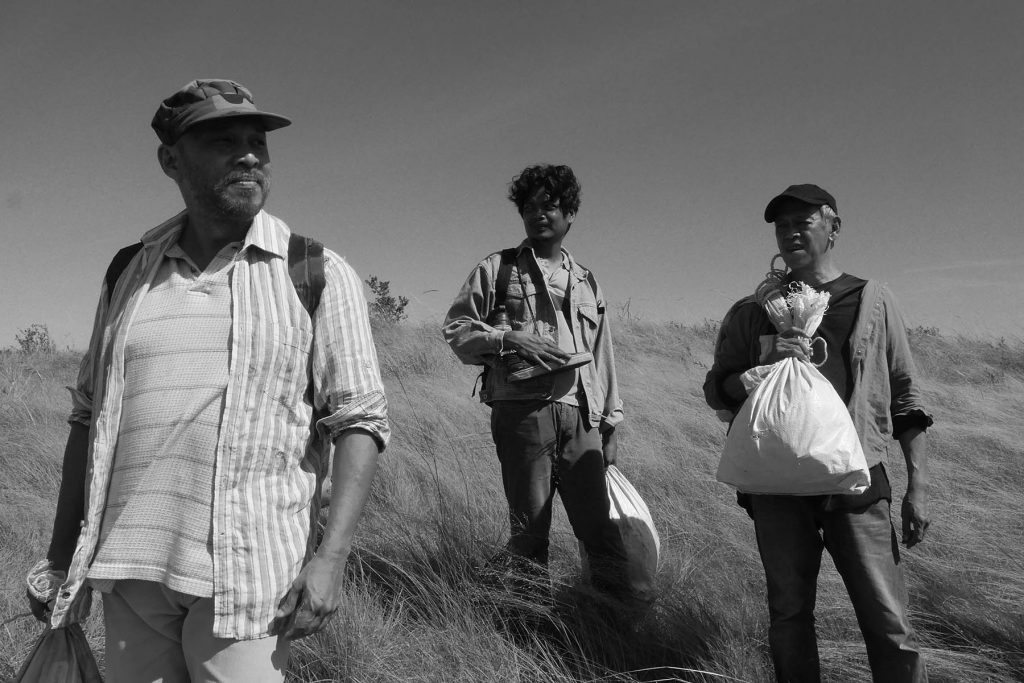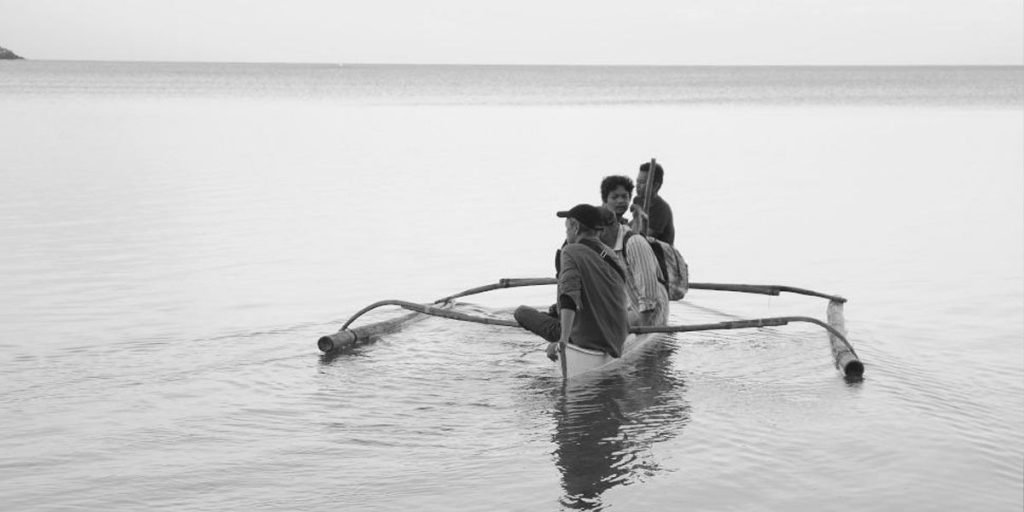Genus Pan (Lahi, Hayop) follows the lives of three Filipino mine workers and exposes the contradictions of the country as it muses on the notion of “humanity”.
Every film by Filipino filmmaker Lav Diaz feels like the first one by him we have ever seen, or the last one we are going to bear with. Omnipresent in academic works with ominous titles that read “Boredom and Cinema”, “A History of The Unbearable” or “The Most Boring Film I Have Ever Watched”, Diaz has gained reputation as master of the Slow and priest of introspection. With features that reach the length of 12 hours in a painful row of dilated time, Diaz has given birth to some of the most ground-breaking films of our age. From eleven-hour-long Evolution of a Filipino Family (Ebolusyon ng isang pamilyang Pilipino, 2004) to Golden Lion-worthy The Woman Who Left (Ang babaeng humayo, 2016), the director usually addresses burning social topics in a merciless way – both from the point of view of content and of form. In a way, this is Purgatory already.
And Diaz’s latest release Genus Pan (Lahi, hayop) doesn’t lower the expectation bar a bit. Premiered at this year’s Venice Film Festival, Genus Pan is, from its beginning, purgatorial in a very literal way. A total length of 150 minutes – which is admittedly very little compared to Diaz’s usual standards – encapsulates the story of Filipino mine workers Andres (Don Melvin Boongaling), Baldo (Nanding Josef) and Paulo (Bart Guingona), who start off on a journey through fields and jungle to get home at the end of their working season. Fights, hallucinations and a pretty dose of feral human behaviour take up what’s left of the plot and paint a dismal, disenchanted portrait of a day in the life of the lower classes of Diaz’s homeland.

The film’s title (Genus Pan) directly references the taxonomical classification of two kinds of apes: chimpanzees and bonobos. Diaz’s title is a declaration of intents and a concise summary of what the filmmaker’s career has been endeavouring to bring up for discussion so far. Painstakingly sitting through endless sessions of human-watching, Diaz is not content with calling human beings “humans”. He thinks there’s more to us than superior living things, and that the missing part has to be found walking backwards down Evolution Lane. In other words, we have to start from what we were instead of what we’ve become: primates who don’t abide neither social morality nor common sense.
Diaz’s filming techniques help the research session unfold smoothly. Vast long shots where the earth merges into the sky and rivers reverberate with the light of sunny afternoons bring back the protagonists in their primordial, messy habitat. A neat, black and white cinematography accentuates the feeling of oneness in which all of the elements of the frame share. Darkness never seems to fall, in Diaz’s Genus Pan. Rough daylight pans over things, animals and humans – they might be different, but do have one and the same seed. The mother of all scenes – a moving fresco of air and water that hosts a boat carrying the main characters from one bank of the river to another – brings back the presence of a hovering Sacred and sets the stylistic pace to the rest of Genus Pan.
Which is a film of expiation and purgatory, but only to those who sit on this side of the screen. To the ones that are acting, they are doing nothing more than carry on with their lives on a daily basis. You cannot feel purgatory unless you acknowledge it. To understand the bestiality of the human condition and behaviour, we must momentarily relinquish it. The spectator is transfigured. Their eyes forever lost in the blazing spots of light under the sun of Diaz’s Philippines.
Genus Pan (Lahi, Hayop) premiered at the 77th Venice Film Festival on 11th September 2020.

